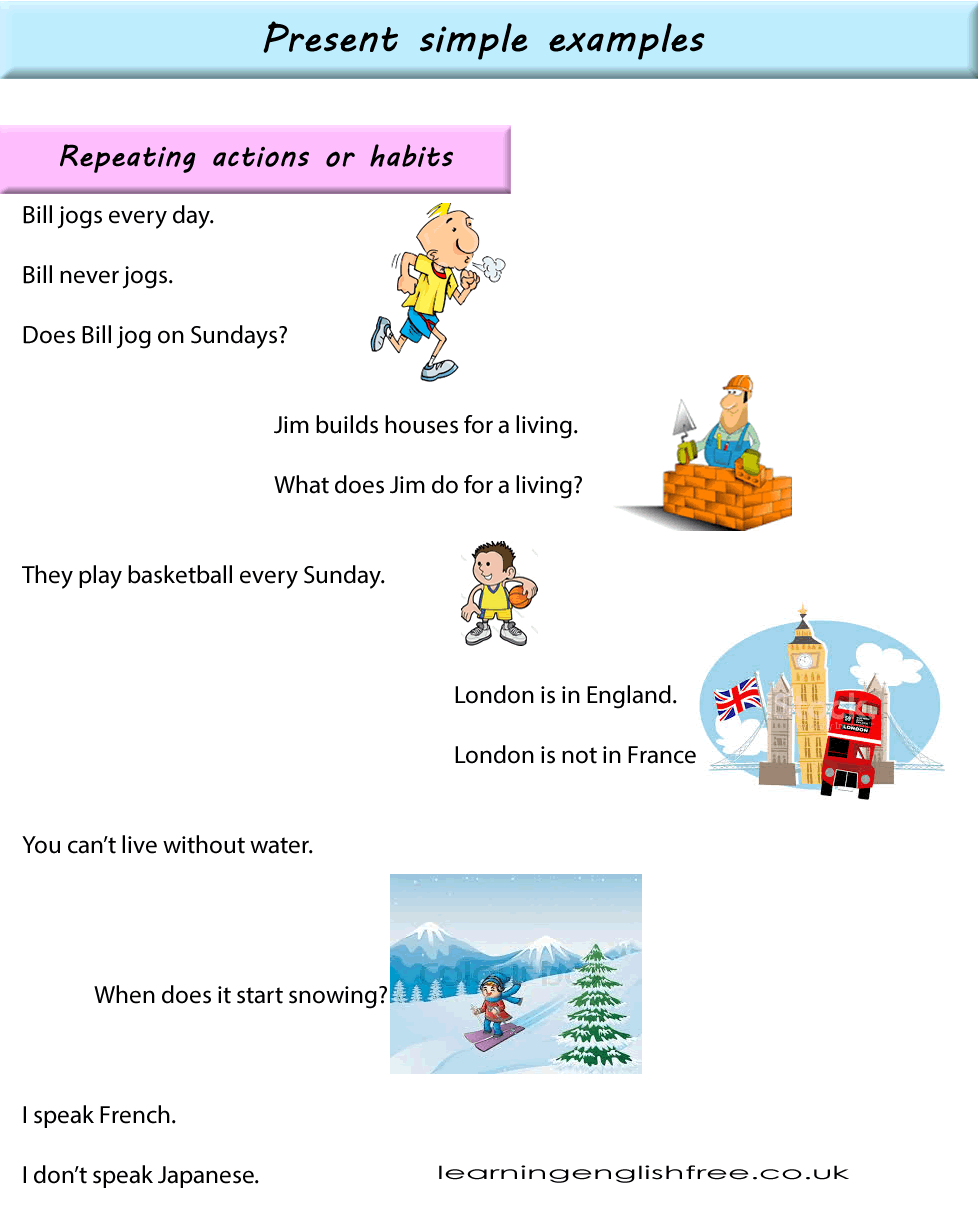Understanding the Present Simple Tense
Welcome to our English lesson focused on the Present Simple tense, a fundamental aspect of English grammar. This lesson aims to help learners understand how to use the Present Simple tense in various contexts correctly. By mastering this tense, you will be able to describe habits, routines, general truths, and states of being with ease. The Present Simple is not only essential for everyday conversation but also forms the foundation for understanding more complex English tenses.

Exploring the Present Simple Tense
-
Usage and Structure:
- The Present Simple tense is primarily used to express repeated actions, habits, general truths, and permanent situations.
- The structure is straightforward: the base form of the verb is used for all subjects except the third person singular (he, she, it), where an '-s' is added to the verb.
- In negative sentences, 'do not' (don't) or 'does not' (doesn't) is used before the base verb.
- For questions, 'do' or 'does' is placed at the beginning of the sentence.
-
Practical Tips for Using the Present Simple:
- Pay attention to the addition of '-s' in the third-person singular form.
- Remember to use 'do' or 'does' in questions and negatives.
- Practice by describing your daily routines, habits, or general facts you know.
-
Common Mistakes to Avoid:
- Avoid forgetting the '-s' with third-person singular subjects.
- Remember not to use 'do/does' in affirmative sentences.
- Be cautious not to overuse the Present Simple tense where other tenses might be more appropriate.
Examples of Present Simple Tense
- Repeating Actions or Habits:
- "Bill jogs every day."
- "Bill never jogs."
- "Does Bill jog on Sundays?"
- Occupations and Routines:
- "Jim builds houses for a living."
- "What does Jim do for a living?"
- "They play basketball every Sunday."
- General Truths and States:
- "London is in England."
- "London is not in France."
- "You can't live without water."
- "When does it start snowing?"
- Language Abilities:
- "I speak French."
- "I don't speak Japanese."
Mastering the Present Simple
The Present Simple tense is a cornerstone of English grammar.
-
Essential Grammar Foundation:
- You've learned how to form and use the Present Simple tense, which is crucial for everyday communication.
-
Enhancing Communication Skills:
- The ability to use this tense accurately will significantly improve your English speaking and writing skills.
-
Practice Makes Perfect:
- Regular practice in different scenarios will help solidify your understanding and usage of this tense.
-
Building Blocks for Future Learning:
- Mastery of the Present Simple paves the way for learning more complex grammatical structures.
-
Further Resources:
- For more insightful English lessons, visit www.facebook.com/learningenglishfree.co.uk and join our growing community of learners.
